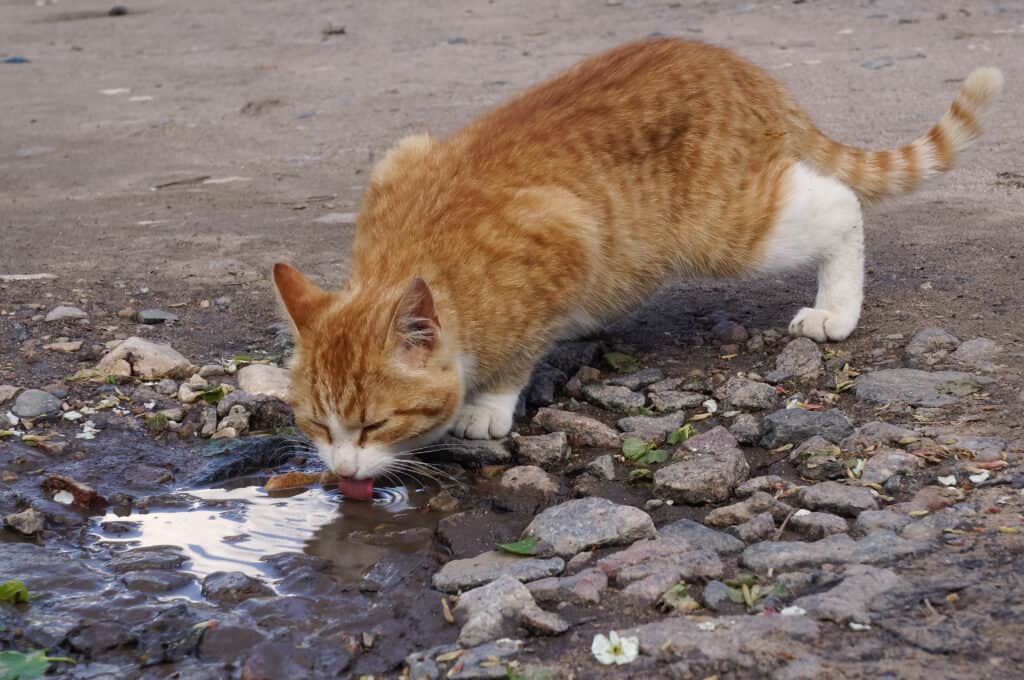All animals, but particularly cats, are susceptible if they ingest common antifreeze. How to protect them – and how to spot suspected poisoning – is explained by Leanne Garrett RVN ISFMDipFN

It is important to remember at this time of year that screen wash and other antifreeze solutions contain the very toxic chemical Ethylene glycol. Ethylene glycol is used to prevent freezing, most commonly used in cars but can also be found in paints and even in ornamental snow globes!
This chemical is extremely toxic to all animals (including humans!) but cats are more susceptible due to their metabolic differences.
This metabolic difference in cats means that even when a very small amount is ingested it causes very rapid and fatal injury to the kidneys which can result in death.
Cats are weird. They like it.
Cats are most commonly exposed when it has leaked into a puddle, been spilled when topping up car fluid levels or drained into a container in a garage. Cats can also be poisoned by drinking rain water that collects in a vessel that previously contained antifreeze.
Unfortunately, ethylene glycol is super tasty to cats, which is why it is so important to be vigilant and take extra care when using the chemical. It should only ever be used in closed systems (such as car engine coolant systems). Any coolant drained from cars needs to be disposed of carefully in tightly closed containers. Any spillages should be cleaned and mopped up thoroughly. Bottles containing ethylene glycol should be stored carefully and tightly closed.
If you are worried that your cat may have ingested ethylene glycol you should take your cat to the vet immediately! – the sooner medical treated is started the better chance of survival.
Signs of antifreeze poisoning:
• Increased urination • Increased drinking • Vomiting
• Depression
• Lethargy (being abnormally sleepy)
• Appearing drunk and uncoordinated • Seizures (fitting)
• Abnormally fast heartbeat
• Very fast, shallow breathing
How to avoid accidental poisonings:
- Never add antifreeze to garden water-features or ponds.
- Always keep antifreeze in clearly labelled, robust, sealed containers, away from pets and their environment.
- Clean up any spills immediately, no matter how small, and make sure pets cannot access the area until it is clean and safe.
- Always dispose of antifreeze safely – contact your local authority for advice.

